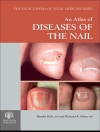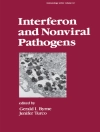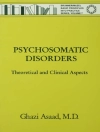In ‚A Vindication of Natural Diet, ‚ Percy Bysshe Shelley presents a compelling argument for vegetarianism, drawing on moral, ethical, and philosophical considerations. Through eloquent prose and persuasive rhetoric, Shelley critiques the societal norms surrounding meat consumption, linking it to broader themes of human rights and compassion for living beings. The book reflects the Romantic era’s reverence for nature and the interconnectedness of life, echoing the ideas of contemporaries like Wordsworth and Coleridge while employing a bold, pre-modern ecological sensibility that underscores the spiritual and physical benefits of a natural diet. Percy Bysshe Shelley, a leading figure of the Romantic movement, was deeply influenced by his philosophical beliefs, transcending traditional norms and advocating for social reform. His aversion to cruelty, driven by profound empathy and a keen awareness of injustice, informed his push for dietary choices that align with a more compassionate existence. Shelley’s life experiences, including his own struggles with societal expectations and personal loss, further colored his advocacy for a lifestyle that fosters harmony between humanity and the natural world. This thought-provoking work is essential reading for those interested in the intersections of ethics, environmentalism, and literature. Shelley’s articulate defense of vegetarianism challenges readers to reconsider their relationship with food, urging a shift toward greater compassion and sustainability. ‚A Vindication of Natural Diet‘ serves as both a manifesto for conscientious living and a testament to the enduring relevance of Shelley’s ideas.
Über den Autor
Percy Bysshe Shelley (1792–1822) was a profound English Romantic poet, considered by many to be among the finest lyric poets of the English language. Shelley was a radical in his poetry as well as his political and social views. Born into an affluent and aristocratic family, Shelley attended Eton and then Oxford, from which he was expelled for his controversial publication ‚The Necessity of Atheism‘. His literary career was marked with classic works such as ‚Prometheus Unbound‘, ‚Ozymandias‘, ‚To a Skylark‘, and ‚Adonais‘, an elegy written upon the death of his friend and fellow poet John Keats. Shelley’s writing is characterized by his use of imagery, meditations on nature and beauty, and themes exploring political oppression and social injustice. His other essay, ‚A Vindication of Natural Diet‘, published in 1813, is lesser-known but is a significant work that aligns with his radical ethos, advocating for vegetarianism based on the principles of health and ethics. Shelley’s work often reflected the turmoil and idealism of his life; his personal conviction for reform permeated his writing, which remained influential throughout the nineteenth century and beyond. His untimely death by drowning at the age of 29 cut short his blossoming literary career, yet his influential works live on, inspiring readers and writers alike.












